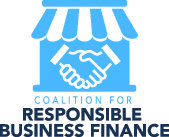Marketplace Lending
Online Lender Avant Hires Ex-FDIC Chief to Board
April 1, 2016 Soon, non banking lending will be made up of ex bankers.
Soon, non banking lending will be made up of ex bankers.
The latest announcement comes from Chicago-based online lender Avant which hired the former head of Federal Deposit Insurance Corporation Sheila Bair to its board. Avant sells unsecured personal loans from $1,000 to $35,000 and has issued loans worth $3 billion.
Bair joins Avant after months of due diligence and said she was impressed Avant’s lending standards are similar to big banks where it retains half the loans on its balance sheet. At the FDIC where she spent five years between 2006 to 2011, she pushed for stricter lending standards with capital and risk. In 2014, she joined the board of Spanish bank Santander for a brief stint.
In the recent months, the new crop of fintech upstarts, backed by venture dollars and fiery ambition have clocked fast growth to justify the impressive hires. Stealth P2P insurance startup Lemonade brought on famous behavioral economist Dan Ariely to design risk models. Student lender SoFi hired Deustche Bank chief Anshu Jain to its board, Funding Circle appointed ex ECB chief Jorg Asmussen and last year Prosper hired former CFPB chief Raj Date.
The alternative lending space is garnering a lot of regulatory attention. SEC Chairwoman Mary Jo White called for more disclosure to investors as well as proprietary risk and lending models adopted by companies. The Small Business Finance Association is working on building a guide for industry best practices.
Breaking News: Judge Grants Temporary Injunction to Halt Entire Marketplace Lending Industry
April 1, 2016April Fools 2016
 A late night session on Capitol Hill has led to a catastrophic outcome for the marketplace lending industry.
A late night session on Capitol Hill has led to a catastrophic outcome for the marketplace lending industry.
At approximately 11:30 PM Thursday night, lobbyists working on behalf of Bank of America, Wells Fargo and TD Bank scheduled an emergency meeting with six members of Congress to discuss, among other issues, the impact of marketplace lending on their bottom lines. “Q1 earnings won’t officially be released for a while,” said Oregon Congressman Edward Duchovny, who was present, “but loan volumes were down across all three banks by a substantial percentage.”
The drops were so alarming, that each bank had initially concluded that their financial reports had been hacked. “They thought there was a security breach,” said a congressional staff member with knowledge of the meeting who was not authorized to speak on the record. “One bank’s consumer lending unit experienced a drop in originations by 50% year over year.”
Shortly after midnight, a team of bleary-eyed auditors and staff members from the Treasury Department concluded that the numbers were correct and that something nefarious was to blame. “We knew that something like this might happen,” said US Treasury forecast analyst Andrea Mitchells. “When we conducted the RFI last year, we met with some of the banks and flat out told them that marketplace lending was irreversibly changing how people borrow money.”
The revenue loss to banks from marketplace lenders in just the first quarter of this year may total as high as $947 Billion, Mitchells said, which warranted the attention of Federal Reserve Chairman Janet Yellen. Though it was the dead of night, Yellen arrived within the hour, along with a team of economists and attorneys.
“The atmosphere changed really quick,” said the anonymous congressional staff member. “One minute we were eating pizza and Chinese food while parsing these boring financial reports and the next minute Chairman Yellen is warning us all about the systemic threat this poses to the very notion of bank lending altogether.”
Yellen, two attorneys, and three of the six Congressmen present, including Edward Duchovny, arranged for an emergency hearing with a federal judge on the grounds that banks stood to suffer irreparable harm unless drastic temporary action was undertaken.
Within minutes, an attorney argued with a straight face that Bank of America might not even survive to see the market’s close on Friday, in part because almost all of its business had been “hijacked” by marketplace lenders. Judge Thomas McAdams III was clearly rattled by what he heard. “I have no idea what the hell marketplace lending even is,” McAdams pontificated from the bench. “It sounds like you’re just describing every single type of lending that exists and then just adding the word marketplace to it,” he shouted, while waving his gavel around.
Ads run by SoFi, a marketplace lender known mainly for student loans, had apparently inflicted devastating damage with their “Don’t Bank” campaign.
“People saw those advertisements and then actually decided not to bank,” said Jane Martin, SVP of TD Bank. “We thought we had a great case for a temporary restraining order.”
McAdams, who held everyone present in contempt of court, nonetheless granted a temporary injunction on all of marketplace lending.
“I think the judge did the right thing,” said Mitchells of the US Treasury.
Duchovny’s feelings however, were mixed. “I thought we were trying to stop people from lending money at supermarkets,” he said. “I asked Yellen if this would affect my loan with Lending Club and she just gave me the dirtiest look.”
Investors across the world from the US to China are bracing themselves for what is expected to be a tumultuous Friday for stocks.
APRIL FOOLS 🙂
SEC Chair to Marketplace Lenders, Disclose Material Information to Investors
April 1, 2016 Stanford University
Stanford UniversityFor marketplace lenders, less is not more when it comes to disclosure.
At an event held at Stanford University yesterday titled, The Silicon Valley Initiative: Protecting Investments in Pre-IPO Issuers, SEC Chairman Mary Jo White gave a keynote speech that mentioned marketplace lending. “As investors are attracted by potentially higher yielding but riskier marketplace loans as an investment strategy, information about the borrower’s ability to repay the loan underlying the investment is critical,” she said.
The message? The SEC is indeed watching.
“We are also concerned about the adequacy of the information received by investors in registered offerings,” she added. “We expect that investors will receive disclosures about the loans underlying their investments, including information about the borrowers as well as the platform’s proprietary risk and lending models, that will enable them to make informed investment decisions – both at the time of investment and on an ongoing basis.”
Her warning comes at a time when the industry has considered reducing disclosures instead of increasing them. Last year, Lending Club announced that investors on their platform would only have access to 56 data points, down from 100, a decrease of almost half. At that time, investors and industry advocates balked at the news.
Lend Academy’s Peter Renton shared what he thought on his blog, “It is pretty obvious by now that I don’t like these changes. For quite some time now Lending Club has been reducing the amount of transparency for investors. Now, some changes I completely understood such as removing the Q&A with borrowers and even the removal of loan descriptions. But removing data that investors have been using to make investment decisions is a step too far in my opinion.”
Some speculated that Lending Club was being forced to do this as a way to prevent investors from trying to reverse engineer their models and beat their grading system for above average yields. For reasons unknown, but potentially due to negative feedback from investors over disclosure, Lending Club changed course and instead added 15 new fields.
To be fair, many marketplaces find that investors simply don’t make use of certain data points and thus they are deemed immaterial. Marketplace lenders also have to balance the privacy of their borrowers with transparency to their investors.
The SEC Chair also spoke about crowdfunding, robo-advisors, the blockchain, and the illusions that subjective private market valuations can create.
This Startup Can Turn Your Phone into a Credit Report
March 31, 2016 Want your phone to generate your credit report and get you a loan? Don’t worry, Branch is working on it.
Want your phone to generate your credit report and get you a loan? Don’t worry, Branch is working on it.
This San Francisco-based startup Branch raised $9.2 million from Andreesen Horowitz. Led by the co-founder of non-profit lender Kiva, Branch uses an algorithm to crawl through contact lists, social network data, GPS data and SMS logs on a phone to generate a credit profile for unbanked consumers.
The startup’s primary market is Kenya and after this funding, Tanzania. Branch controls the entire lending supply chain in Africa, right from assessing a person’s creditworthiness to selling loans to collecting debt.
As new lenders emerge in the market, they create a new breed of borrowers. Startups are spending tons to hire top class talent to create new credit models that are, as some would say fairly accommodating of riskier borrowers.
Last month (February 24th), P2P insurance startup Lemonade hired behavioral economist Dan Ariely to design systems to assess risk. Data Analytics startups like PeerIQ and Dataminr perform similar functions for investors.
As for Branch, focusing on the lending market in Africa might be a good strategy after all.
Marketplace Lenders Will Return to Their Peer Roots, Insiders Say
March 30, 2016
Will marketplace lending revert back to peer-to-peer lending? Insiders said “yes,” during a panel hosted at CommonBond’s NYC office yesterday. Moderated by WSJ reporter Telis Demos, The State of Fintech Lending included two panelists that had something to say about the greatly exaggerated death of “peers” in peer-to-peer lending.
Marketplace lenders will look to tap back into individual investors, said CommonBond CEO David Klein, specifying that accredited investors were an obvious choice but that true retail investors would also play a role.
Fundera CEO Jared Hecht said marketplace lenders can achieve a “network effect” with retail investors, something not likely to occur with institutional sources. The network effect is a phenomenon whereby a good or service becomes more valuable when more people use it. “Retail investors are more loyal to a specific platform,” Hecht said.
Klein explained that the retreat from peers over time stemmed from Lending Club and Prosper’s historical issues with the Securities and Exchange Commission. Both companies faced an existential threat in 2008 over the alleged sale of unregistered securities to unsophisticated investors. They were able to overcome this by agreeing to register every single loan offered on their platforms as a security with the SEC. Today, that has led to both companies becoming part of the top five filers of securities in the US, Klein said. While this registration process is mostly automated, the road to get there was complicated and thus there was a shift towards institutional sources for most new entrants.
But there are signs it’s coming back. Two weeks ago, small business lender StreetShares announced that retail investors would soon be able to invest on their platform. But even then, StreetShares has accomplished this through a less complicated process than the ones Lending Club and Prosper adhere to. Under the JOBS Act’s Regulation A+, startups can raise up to $50 million over a 12-month period from retail investors.
The return path may be slow, however. Prosper for example, still sells 92% of its loans to institutional sources and only 45% of Lending Club loans are sold to retail investors. Even they are not entirely peer-to-peer.
The marketplace lending industry will inevitably come to respect the “peer” again, panelists concluded. “2016 will be the year that marketplace lenders will go from the mainstream to maturity,” Klein said.
Not All Marketplace Lenders Are Created Equal – The State of Fintech Lending
March 30, 2016 It’s kind of a problematic term, said CommonBond CEO David Klein about “marketplace lending.” Klein was one of four industry experts on the State of Fintech Lending panel hosted at their office on Tuesday morning. “Not all marketplace lenders are created equal,” he said. There are different asset classes, different credit spectrums and even different investor responses, he explained.
It’s kind of a problematic term, said CommonBond CEO David Klein about “marketplace lending.” Klein was one of four industry experts on the State of Fintech Lending panel hosted at their office on Tuesday morning. “Not all marketplace lenders are created equal,” he said. There are different asset classes, different credit spectrums and even different investor responses, he explained.
CommonBond for example, focuses on student lending and more specifically, the very upper end of the credit spectrum. As proof, Klein said the company has not even experienced a 30-day delinquency or default. Compare that asset with some of the products offered by Fundera, which range from merchant cash advances to SBA loans and it’s easy to see why marketplace lending as a category can be overly broad. Fundera CEO Jared Hecht was another panelist alongside PeerIQ CEO Ram Ahluwalia and Macquarie Group Managing Director Brian Foley. WSJ reporter Telis Demos served as the moderator.
Klein’s company deals with institutional investors, which loosely qualifies it as a marketplace in the sense that there are buyers for their loans. Hecht’s company is a marketplace too but for small business owners seeking loans. Fundera is not a lender. “We don’t have to run around and deal with the capital markets,” Hecht said.
Despite the incredible diversity of asset and credit classes, PeerIQ’s Ahluwalia described the quality of the securitizations taking place throughout the industry as very good. “This is going to be a very different movie than The Big Short,” he said. As of the end of 2015, PeerIQ ranked total cumulative securitizations at $8.4 Billion, with 41 deals issued to date (25 Consumer, 9 Student, and 7 Small Business).
Pension funds and insurance funds who are attracted to this space are focused on AAA rated bonds, said Macquarie’s Foley. “They want scale, performance and track record,” he said, adding that they’re happy to trade away return for a reduction of risk so that they can sleep at night.
There’s over 200 marketplace lenders in the US, Klein stated. Only 12 or 13 have reached a certain level of scale though, he added. “2016 will be the year that marketplace lenders go from the mainstream to maturity,” he said.
Perhaps as part of that, however, the marketplace lending term will have to mature with it. “Each category is very different,” said Klein.
SoFi Funds $1B in Student Loans, is Lobbying Working?
March 29, 2016 Student lender SoFi crossed $1 billion in student loan refinancing through its corporate partnerships which lets employers like Microsoft pay for student loans.
Student lender SoFi crossed $1 billion in student loan refinancing through its corporate partnerships which lets employers like Microsoft pay for student loans.
The announcement is rightly timed as lawmakers push for bills that give tax benefits on employer-paid student loan repayment programs.
Companies can contribute as little as $100 a month to refinance employee student loans or offer to refer them to SoFi as part of the bonus package. All roads thus leading to SoFi.
What SoFi likes to boast as the “hottest employee benefit,” over a 401k plan, is being advocated for by Congressman Rodney Davis, who is pushing the Employer Participation in Student Loan Assistance Act, which gives employees a tax-exempt benefit of up to $5,250 per year to pay on their already incurred student loan debt and allows employers to deduct the subsidy provided to employees.
“The Employer Participation in Student Loan Assistance Act encourages employers to be part of the solution by allowing them to offer an employee benefit that will help graduates pay down their student debt. With outstanding student loan debt totaling more than $1 trillion, we must find ways to engage the private sector and help graduates manage their debt,” according to Davis’ website.
And he did find ways to engage with the private sector. Records show that SoFi spent close to $130,000 in the last two years, lobbying to get the bills enacted into law. The act which ostensibly helps employers attract and retain young talent creates a bigger market for SoFi loans.
And with $1 billion in originations, it seems to have gotten itself a great deal. And in its own words, “with programs like these, everybody wins.”
The Coalition for Responsible Business Finance Adds Yet Another Perspective on Small Business Lending Advocacy
March 29, 2016Is three a crowd? The Coalition for Responsible Business Finance (CRBF) seeks to improve small business finance.
As a new advocacy organization, the CRBF is dedicated to bolstering the credibility, reliability and security of the growing non-traditional small-business lending industry, they say. Spearheaded by Tom Sullivan, former Chief Counsel for Advocacy in the Small Business Administration, CRBF Advisory Board executives include representatives from the National Federation of Independent Business (NFIB), the National Small Business Association (NSBA), and the Small Business & Entrepreneurship Council (SBE Council).
“CRBF was created to educate state and federal policymakers, media, and communities on how technology and innovation are providing small businesses access to capital that is necessary for growth,” Sullivan said in an organization announcement this morning.
 The organization has been developing for some time, but its official pronouncement nearly coincides with that of the Commercial Finance Coalition, another group with a similar goal.
The organization has been developing for some time, but its official pronouncement nearly coincides with that of the Commercial Finance Coalition, another group with a similar goal.
And it’s shaping up to be quite the Spring here in 2016 because the Small Business Finance Association, yet another organization, is preparing to unveil a white paper of guiding industry principles.
And so that makes three, yet each appear to be bringing their own unique perspectives to the table. That is perhaps better than hundreds of unorganized perspectives under no collaborative banners, some industry vets are saying.
“Small business owners expect and deserve choices for credit,” Sullivan said. “And we at the [CRBF] believe that a better understanding of non-traditional small business lending will lead to greater acceptance by customers, regulators, and local, state, and federal elected officials.”
Touché.





























